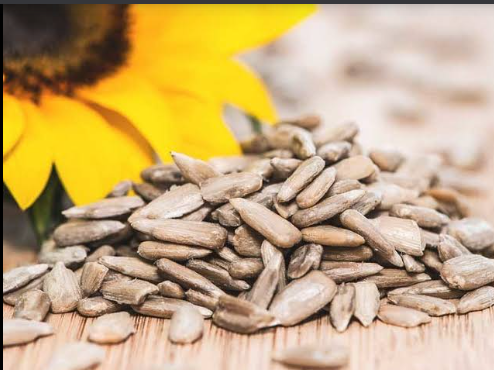Sunflower seeds: Nutritional and health benefits
Sunflower seeds are popular health foods that people commonly consume in trail mix, breakfast cereals, or straight from the bag as a snack. They contain beneficial nutrients, including healthy fats, minerals, and antioxidant compounds.
Nutritional value

Sunflower seeds have a tough outer shell with a striped appearance. As the shell is difficult for humans to digest, they usually eat the hulled seeds. People can also grow sprouts from the sunflower seed kernels, which can increase the seeds’ nutritional benefits.
A 1-ounce (oz) portion of hulled sunflower seeds provides the following nutrients:
| Nutrient | Amount per oz of hulled seeds |
|---|---|
| Calories | 165 |
| Protein | 5.48 g |
| Fat | 14.1 g |
| Carbohydrate | 6.82 g |
| Fiber | 3.15 g |
| Vitamin E | 7.4 g |
| Niacin | 2 mg |
| Calcium | 19.8 mg |
| Magnesium | 36.6 mg |
| Zinc | 1.5 mg |
| Selenium | 22.5 mcg |
| Iron | 1.08 mg |
According to a 2017 review, sunflower seeds have the following nutritional value:
- sulfur-rich proteins valuable for many biological processes, including muscular and skeletal development
- amino acids including glutamine, arginine, and cysteine
- 55–70% linoleic acid and 20–25% oleic acid
- higher amounts of vitamin E than linseed, sesame seed, and peanuts
- antioxidants including flavonoids and phenolic acids
- high concentrations of niacin, and vitamins A, B, and C
- rich in minerals such as calcium, iron, and magnesium
About sunflower seeds
The common sunflower (Helianthus annuus L.) is a species of the Asteraceae family. The plant seeds are edible, and manufacturers use them for foods and producing sunflower oil. As such, sunflower oil ranks as the fourth most produced oil in the world.
As well as providing human food sources, farmers use sunflower seeds for livestock food. The germination of the seeds also has essential secondary roles in ecology and the lifecycle of organisms.

